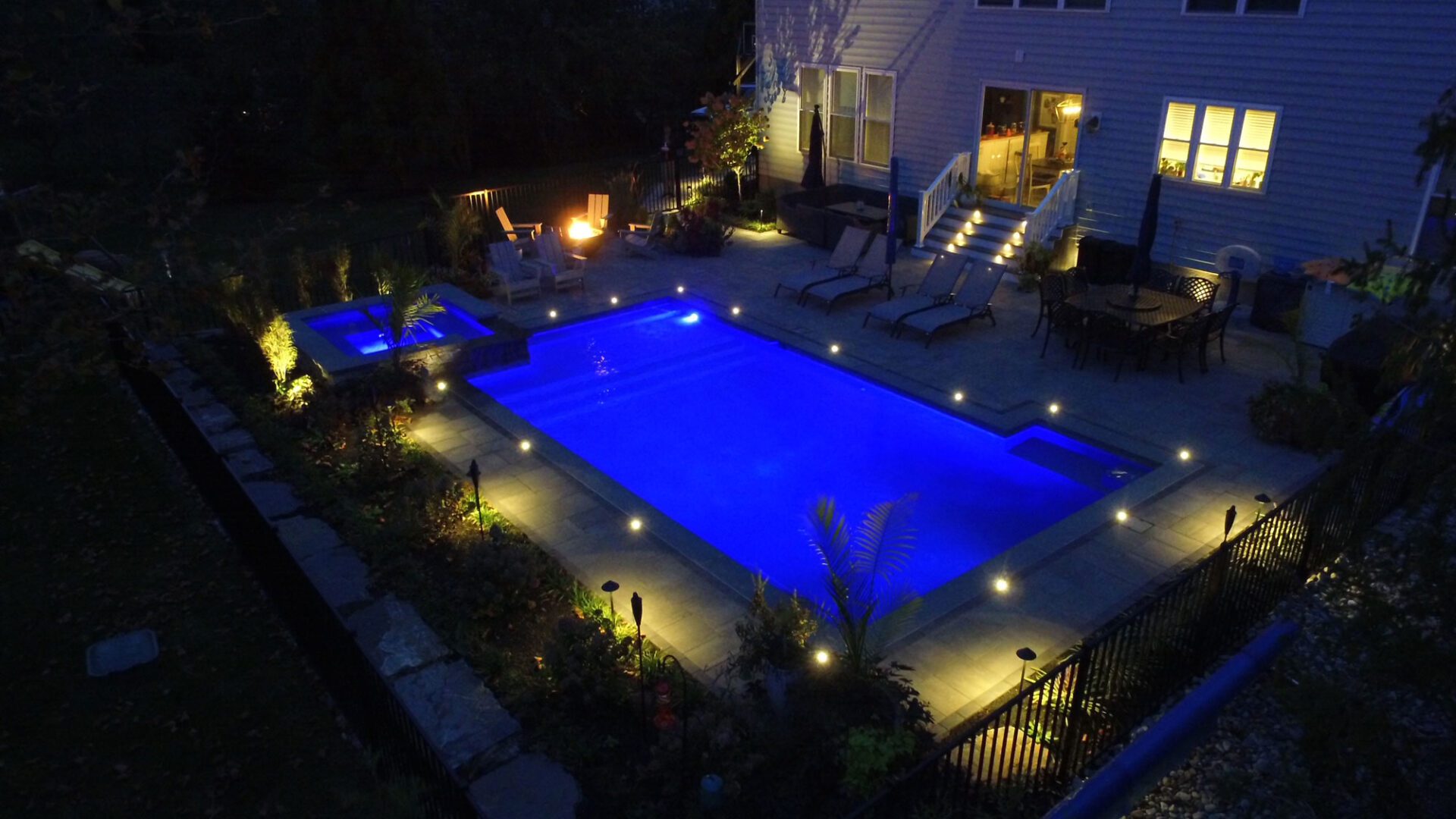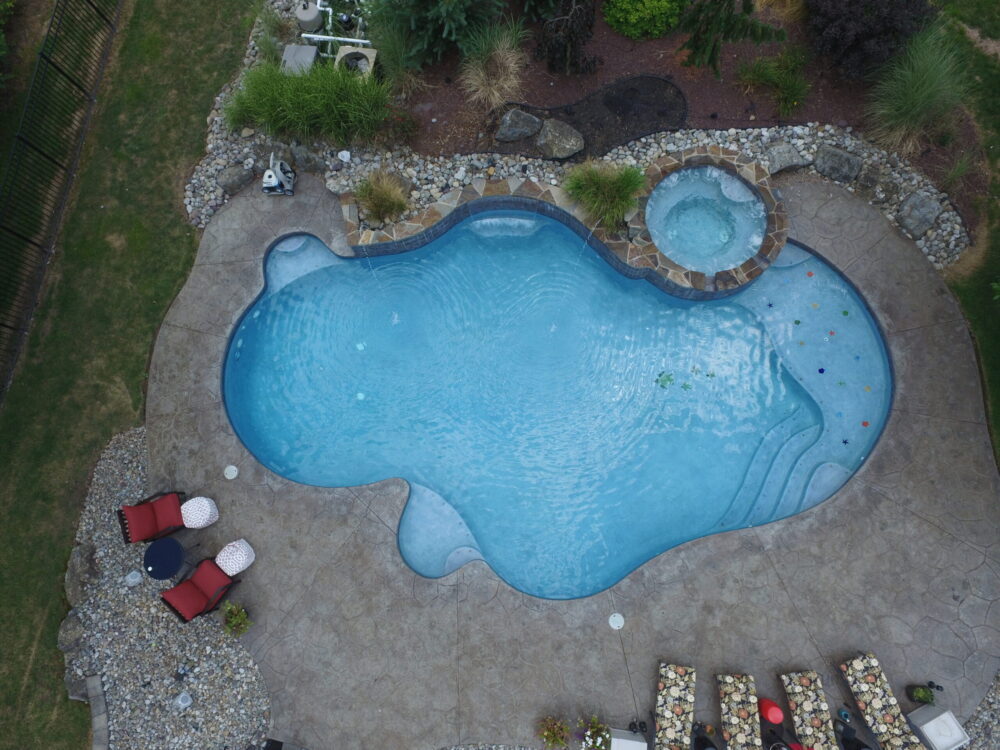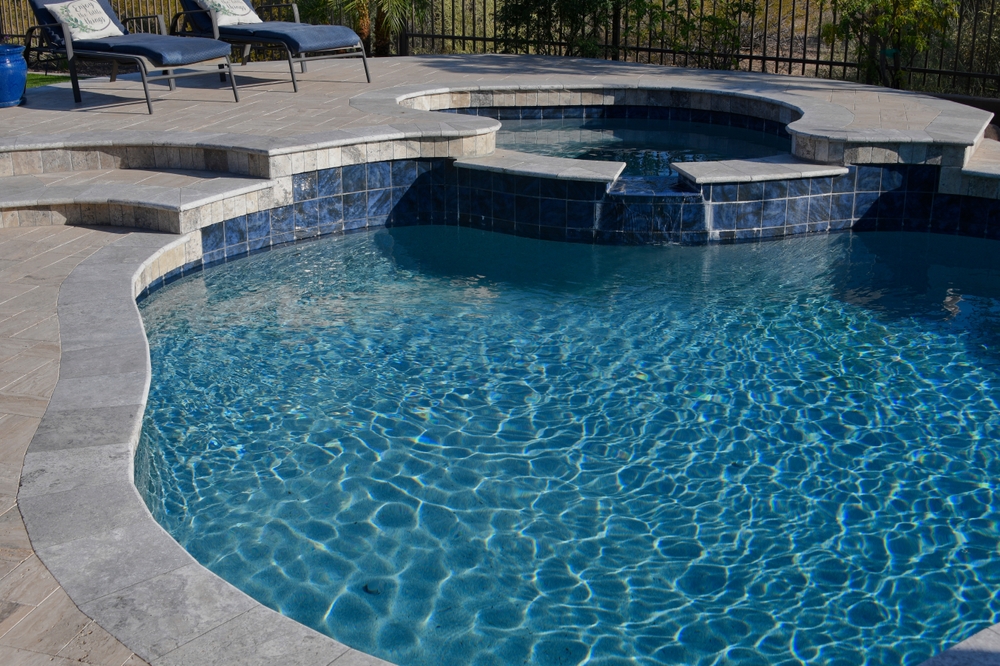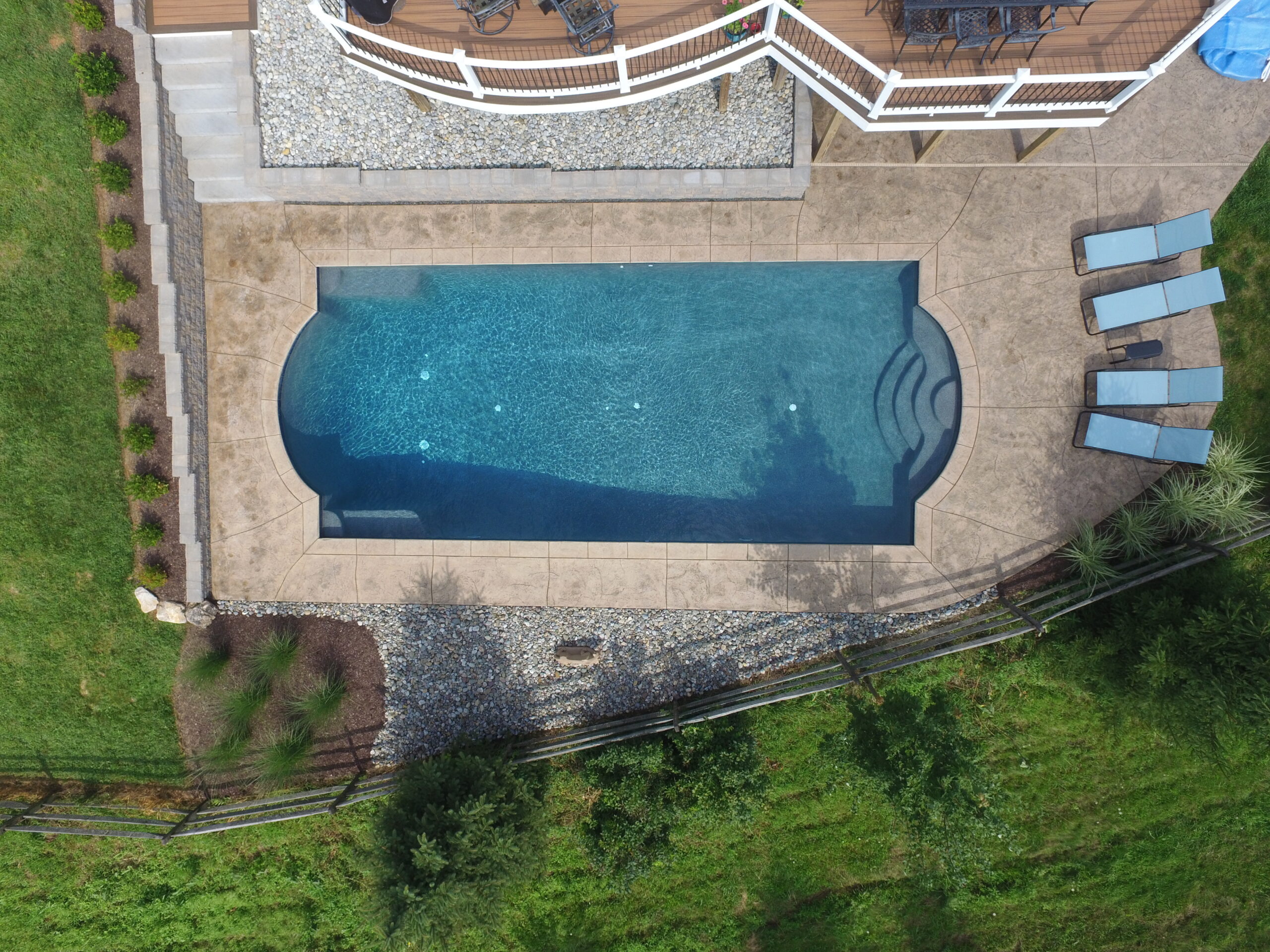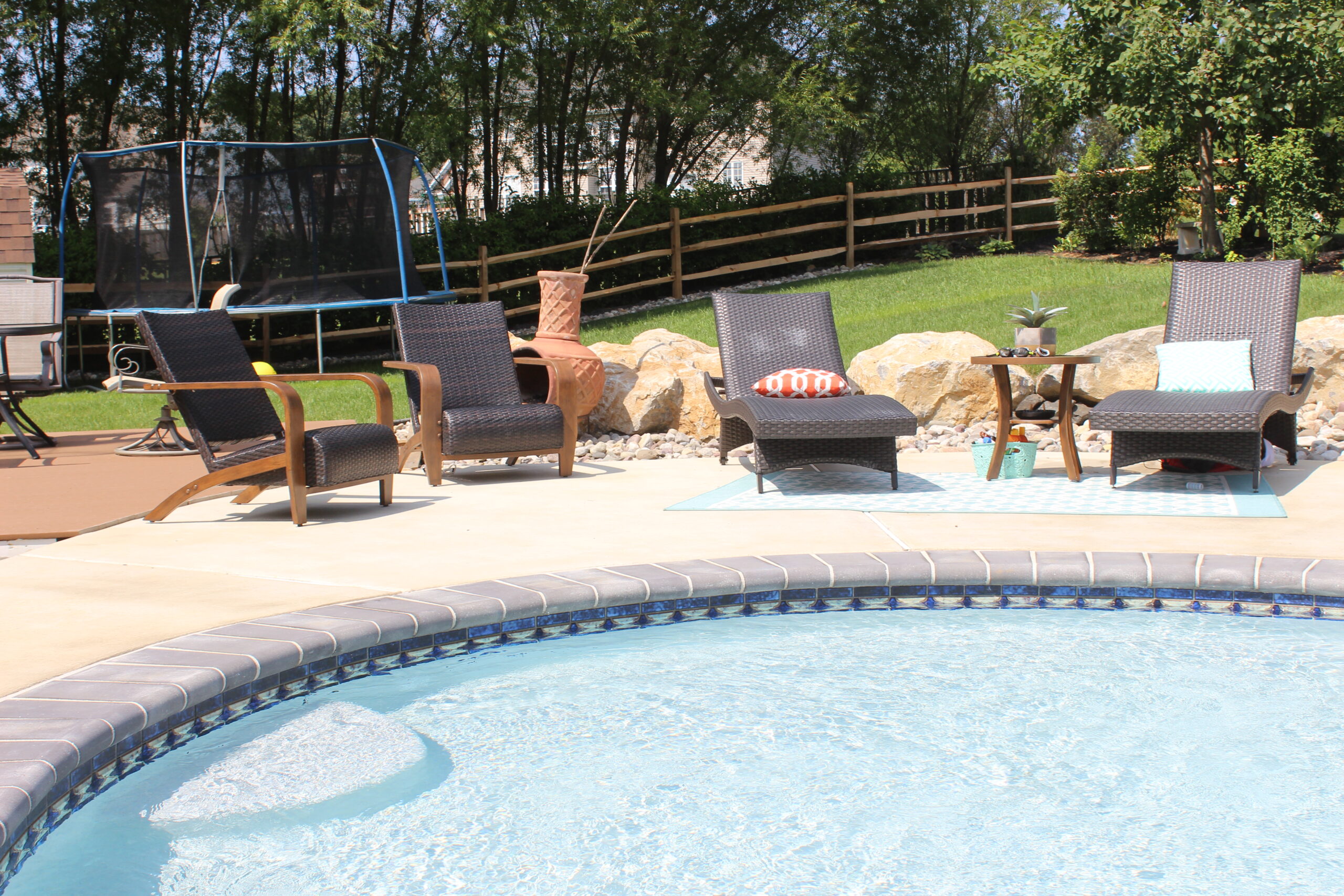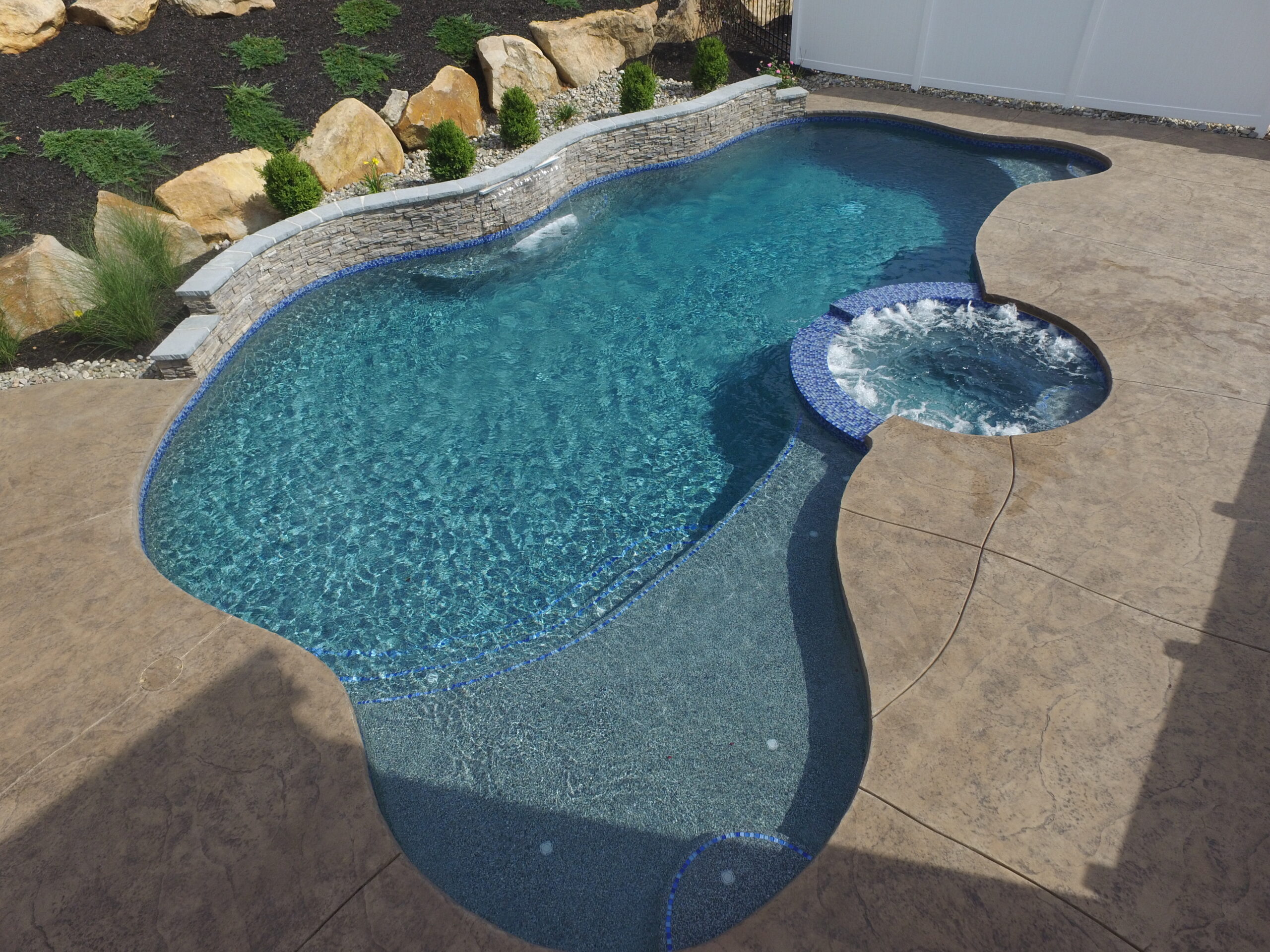The first step to adding a pool to your home is making some basic decisions about the kind of pool you want, and the kinds of materials you will use.
The right decision for you will depend on your needs, your budget, and your vision for the pool. What kind of shape and size pool do you want? How much maintenance are you willing to do?
It can be overwhelming at first, but it doesn’t have to be. In this article, we’ll break down the best materials to use for your pool.
Which is the Best Material for a Pool?
This depends on your budget and requirements – but most people will choose fiberglass, for some really good reasons.
Fiberglass is nonporous, which means there are no nooks and crannies for algae to grow in. It’s a strong, durable, material that can last up to 50 years and will increase the value of your home. Fiberglass pools require less maintenance on average and have the smooth, beautiful look that most people recognize. Fiberglass is cheap, versatile, beautiful, and low-maintenance, which is why there are so many inground fiberglass pools in PA.
However, some limitations might lead you to consider other options.
The cheapest possible option is a vinyl liner pool. It costs more over the lifetime of the pool because you will need to replace the liner every several years, but strictly speaking, you can get away with spending less upfront.
Also, fiberglass pools have some size restrictions that might lead you to look at concrete, instead.
Fiberglass shells are usually delivered via truck, so they can’t be wider than 16 feet. If you want a pool that is deeper than 10 ft or wider than 16 ft, or if you plan on increasing the size or shape of your pool over time, concrete might be a better fit.
Concrete pools require more maintenance, since their porous surface allows algae to grow, and are more expensive, but they can be customized and changed in some ways that fiberglass pools can’t be.
Which is Better: Chlorine or Saltwater?
If you have a steel wall vinyl pool, saltwater won’t work. The salt will damage the materials over time.
If you have a fiberglass or a concrete pool, you can choose between saltwater and chlorine. Saltwater pools can be more costly upfront but are cheaper to maintain over the life of the pool and don’t sting your eyes.
For most people, the decision between chlorine and saltwater is more about the pleasure of swimming than the cost or efficiency. Chlorine and saltwater are both effective at keeping your pool clean.
Contact the Pool Professionals
For help making all of your pool decisions, reach out to the experts on custom pools in Pennsylvania, Scott Payne Custom Pools. No matter what your requirements are, we can help you find the perfect pool, in the material that works for you.
